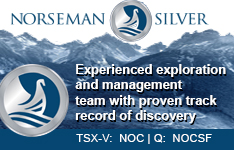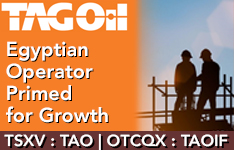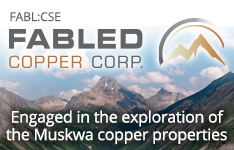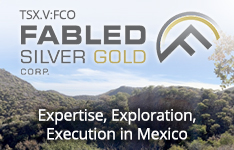Clinical-stage pharmaceutical development firm Algernon Pharmaceuticals Inc. (AGN:CSE; AGNPF:OTCQB; AGN0:XFRA) announced it has been issued a patent through the United States Patent and Trademark Office (USPTO) for the treatment of three diseases with its drug repirinast.
Covered under the patent is the treatment of fatty liver disease (NAFLD), including steatohepatitis (NASH), and NASH-derived hepatocellular carcinoma. Algernon was also recently issued a patent for the use of the drug for NASH in Japan and has filed patent applications in Canada, China, and Europe for repirinast, which is also being investigated by Algernon for chronic kidney disease (CKD).
"This is the first patent received from the USPTO by Algernon for one of its drugs being investigated under its innovative drug repurposing program and is further validation of our intellectual property strategy," said Christopher J. Moreau, chief executive officer of Algernon Pharmaceuticals.
The base claims of the U.S. patent will be valid through 2039 in the United States, the company noted.
It has also received a notice of intention to grant from the Chinese Patent Office to treat the diseases with the drug.
"Consider Algernon an Immediate Buy; the company is added to my roster of speculative-rated companies," Chris Temple of The National Investor said after the decision.
Algernon's application patent, No. 112654357, was entitled "Compositions and Methods for Treating Non-Alcoholic Steatohepatitis," the company said.
The Catalyst: Finding Drugs With 'Heavy Lifting' Already Done
Algernon's business model is to discover new and therapeutic uses for drugs that have already been approved but are off-patent and repurpose them for new disease indications. The other key element is that they only advance drugs that have never been approved in the U.S. or Europe. This approach reduces risk and capital and shortens the drug development pathway, with Algernon relying on newly filed patents, including method of use, dosing, formulation, and novel salt forms.
Repirinast, which had been sold under the brand name Romet and was approved as an asthma drug in Japan, is being investigated by Algernon for CKD. The CKD market is expected to reach US$15.8 billion by 2024.
Repirinast showed that it reduced fibrosis by 51% with statistical significance and showed an additive benefit to telmisartan in a unilateral ureteral obstruction (UUO), which is a mouse model of CKD.
"Consider Algernon an Immediate Buy; the company is added to my roster of speculative-rated companies," Chris Temple of The National Investor said after the decision.
Algernon said it is also investigating repirinast for NASH since it reduced hepatic fibrosis by 57% compared to vehicle and reduced the NAFLD score (a composite histopathological measure of inflammation, steatosis, and ballooning) by 31% compared to vehicle.
The company recently signed a letter of intent for U.S.-based Selytx Inc. to acquire its additional lead drug called ifenprodil for US$2 million and a 20% equity position. Seyltx, which is privately owned, plans to conduct a Phase 2b chronic cough study on the drug as soon as possible.
Key data from the ifenprodil Phase 2a study showed a "significant reduction in cough count," including the geometric mean 24-hour cough counts, which were reduced by 32% at four weeks (p = 0.023) and 39.5% at 12 weeks (p = 0.001), compared to baseline.
The geometric mean awake cough counts were reduced by 30.2% at 4 weeks (p = 0.038) and 37.4% at 12 weeks (p = 0.002), compared to baseline.
Positive Feedback for Chronic Cough Treatment
Algernon has previously announced that it had received positive feedback from the USDA at its pre-Investigational New Drug (pre-IND) meeting for ifenprodil solely for the treatment of chronic cough.
"With the U.S. FDA recently providing Merck a Complete Response Letter rejecting its chronic cough drug candidate gefapixant, citing a lack of efficacy, it is very important to continue moving ifenprodil forward as a potential global treatment of chronic cough," Moreau said.
According to Data Bridge Market Research analyses, the global chronic cough market was valued at US$6.15 billion in 2021 and is projected to grow to US$11.38 billion by 2029.
Ifenprodil represents a novel first-in-class potential treatment for chronic cough and is only one Phase 2b study away from the stage of development, where Bellus’ cough drug camlipixant was acquired by GSK for US$2B, and Afferent’s cough drug gefapixant was acquired by Merck for US$1.25B.
Algernon's NeuroScience subsidiary, which is investigating a new potential stroke treatment, announced it has completed dosing the third and final cohort in its escalating dose phase 1 clinical study of an intravenous formulation of AP-188 (N, N -dimethyltryptamine or DMT).
According to Algernon Neuro, the safety review committee has confirmed that patients experienced no safety or tolerability issues with the highest dose, which was able to maintain plasma DMT concentrations at the targeted levels and which was below the established psychedelic dose of 0.2 milligrams per kilogram. Algernon Neuro is the first company to test DMT at single escalating concentrations with an IV dose for a six-hour duration.
 Streetwise Ownership Overview*
Streetwise Ownership Overview*
Algernon Pharmaceuticals Inc. (AGN:CSE; AGNPF:OTCQB; AGN0:XFRA)
In preclinical studies, it was found that DMT increased brain-derived neurotropic factor, which is believed to be an important part of healing the brain after an injury. DMT is believed to activate pathways involved in forming neuronal connections and has been shown to increase the number of dendritic spines, which form synapses with other neurons and are a critical site of molecular activity in the brain on cortical neurons.
Algernon Neuro has recently completed a feasibility study and has finalized its clinical trial design for a 40-patient Phase 2 DMT Stroke study. AGN Neuro is the world’s first company to investigate DMT for the treatment of stroke and its ability to promote neuroplasticity in the healing of brain injuries.
Ownership and Share Structure
Management and directors own approximately 7% of the company. According to Reuters, the Canadian firm Alpha North Asset Management owns 15.39% with 3 million shares, and the CEO Moreau owns 4.18% or about 820,000 shares.
Algernon has a market cap of CA$945,800, with 19.51 million shares outstanding. It trades in a 52-week period between CA$0.74 and CA$0.05.
| Want to be the first to know about interesting Nutraceuticals, Psychedelics and Biotechnology / Pharmaceuticals investment ideas? Sign up to receive the FREE Streetwise Reports' newsletter. | Subscribe |
Important Disclosures:
- As of the date of this article, officers and/or employees of Streetwise Reports LLC (including members of their household) own securities of Algernon Pharmaceuticals Inc.
- Steve Sobek wrote this article for Streetwise Reports LLC and provides services to Streetwise Reports as an employee.
- The article does not constitute investment advice. Each reader is encouraged to consult with his or her individual financial professional. By opening this page, each reader accepts and agrees to Streetwise Reports' terms of use and full legal disclaimer. This article is not a solicitation for investment. Streetwise Reports does not render general or specific investment advice and the information on Streetwise Reports should not be considered a recommendation to buy or sell any security. Streetwise Reports does not endorse or recommend the business, products, services or securities of any company mentioned on Streetwise Reports.
- This article does not constitute medical advice. Officers, employees and contributors to Streetwise Reports are not licensed medical professionals. Readers should always contact their healthcare professionals for medical advice.
For additional disclosures, please click here.




































